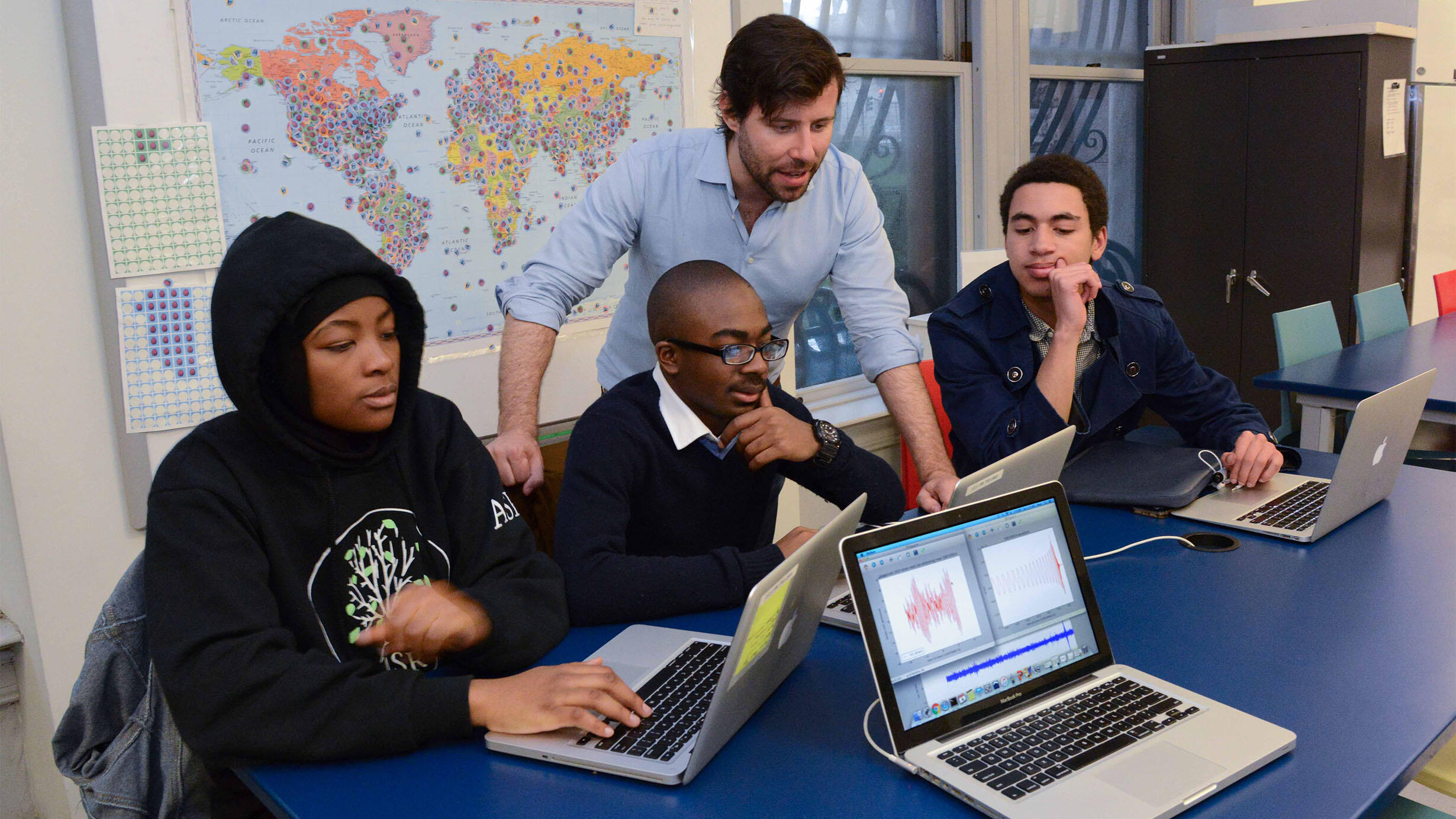 SRMP students Mariam Abalo-Toga, Abraham Derival, and Langston Kosoff (pictured left to right) with mentor Imre Bartos (pictured in blue shirt).
SRMP students Mariam Abalo-Toga, Abraham Derival, and Langston Kosoff (pictured left to right) with mentor Imre Bartos (pictured in blue shirt).As college students head back to campus over the next few weeks, they will continue to face disruptions from the COVID-19 pandemic—but there are strategies to help lessen its effects on their academic careers.
The past school year had been precarious for students in STEM (science, engineering, technology, and math) fields, as shown in recently released mid-point results from a Museum study funded by the National Science Foundation’s RAPID grant and done in partnership with SRI International. And this summer, typically a time for internships and summer jobs that provide important professional experiences, has not offered these opportunities due to shutdowns and other pandemic-related cancellations.
Survey data from 190 college students who graduated from the Museum’s Science Research Mentoring Program (SRMP) or from one of its partner programs showed that nearly 50 percent of students, of which 80 percent identify as BIPOC (Black, Indigenous, people of color) reported their academic trajectory had been greatly or moderately affected. Of students who had planned or declared a STEM major, 15 percent have left or considered leaving the field, and 26 percent reported that the pandemic affected their ability to complete degree requirements. Third- and fourth-year college students reported higher levels of concern about their ability to complete their degrees.
Heading into a new school year, pandemic concerns persist—but researchers have also identified supports and resources that college faculty, out-of-school programs, STEM mentors, family members, and even the students themselves can draw on to help manage the challenging semesters ahead.
Among the recommendations: faculty should work closely with juniors and seniors to ensure that students can complete their course requirements, match juniors and seniors with first-year students to encourage peer mentoring in STEM fields, and consider making specific adjustments in this year’s in-person courses to accommodate students who are concerned that last year’s remote learning did not adequately prepare them for the next level of study.
Mentors of students in STEM can help by advocating for extra support and course adjustments and by helping students identify upcoming internship and summer opportunities to help build skills and reinforce connections to their chosen field.
The full set of recommendations, including for families and students, is available as part of the mid-project report, “Supports and Challenges in an Educational Crisis: The Impact of the COVID-19 Pandemic on Youth Stem Pathways.” A full report with additional data will be published later this year.